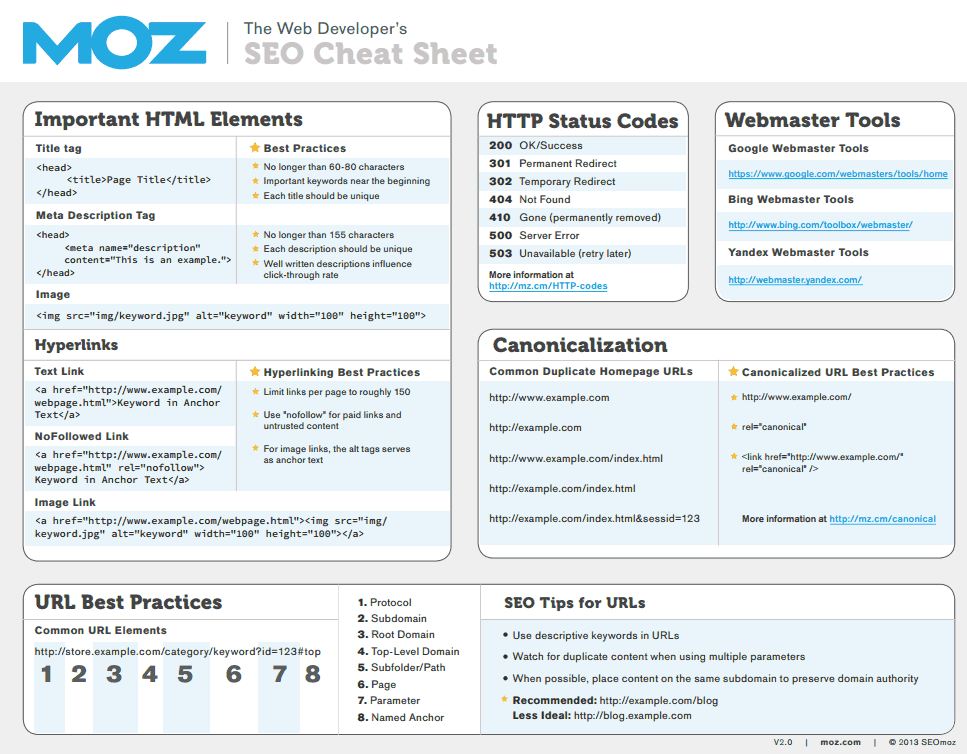Anyone charged with the responsibility of a website today is likely familiar with SEO or search engine optimization. Or more likely, you’ve heard of it and you know it’s important that someone on your team understands it.
For newbies to SEO here’s what all the fuss is about
Behind the list of results Google suggests in response to your keyword or phrase, is a complicated algorithm (actually algorithms, plural) that assess each possible website across a dizzying array of parameters for the query at hand. The main algorithm and bolt-on algorithms are being tweaked and modified regularly to keep black-hat SEO’s from gaming the results and to take into account changes in how content is judged to be relevant.
It’s important to note that outside of Google’s search team, no one knows exactly how they calculate relevance. There are a lot really smart people out there however, who test all kinds of parameters, from the words in your posts, to the file name of a page, to bolded words in your text, to links to your site, and on and on to see how sites are affected when changes in the algorithms occur. Smarty pants researchers provide some pretty good insights such as the SEO Cheat Sheat, below, by search firm, MOZ.
It’s also important to understand that with SEO, there’s no silver bullet. So if someone approaches you promising that you’ll be in the top three results in a few months, you may want to treat that appeal with a healthy dose of skepticism. That doesn’t mean it’s all doom and gloom, you just need to make sure that you’re doing what we know is advantageous and avoiding the known pitfalls as well, or suffer the search result equivalent of Siberia. It happens.
Good search engine results start with a site built for search. Choosing a web developer that understands the ins and outs of search is an important first step. It’s executing on the many, many things we do know regarding search in the building of your site that is the foundation of all your post launch efforts.
Luckily today all our sites are built incorporating the WordPress CMS engine and WordPress is designed to be SEO-friendly. On top of that, there are several amazing SEO plugins that take care of a laundry list of must-do’s while you get to work creating new content on your site.
So what do you need to know about achieving better search engine results?
Well, as much as you like, but a well-informed web developer that not only knows the ins-and-outs of building a site optimized for search without sacrificing design is all important. At the same time a basic understanding of SEO will also help you to create content that is useful to your audience and incorporates search terms and phrases that visitors are actually using to find you.
SEO is an incredibly deep subject matter. In fact, even for those of us who follow SEO, it can be a bit a rabbit hole. However, our job is to make SEO accessible to you. Understanding the basics will actually go a long way to improving your organic search results for different keywords. We’ll do much of the heavy lifting based on your input.
Once we pass the site on to you, we’ll help you understand the rules of the road and provide key tips and tools within the WordPress environment that will help ensure that you’re getting the biggest bang for your content creation efforts.
It bears repeating – in the end, there’s no magic bullet. We have to get the thousand-and-one little things right and most importantly, your job is to create great content for your audience – not robots. As Google’s Matt’s Cutts says, “the overriding kind of goal is to try to make sure that you’ve got high-quality content, the sort of content that people really enjoy, that’s compelling, the sort of thing that they’ll love to read that you might see in a magazine or in a book, and that people would refer back to, or send friends to, those sorts of things.” The flip-side to that of course is publishing “stuff that’s derivative, or scraped, or duplicate, and just not as useful.”
And in a way, isn’t it great to know that SEO is related more to your content than to arcane techie tricks?
Kelly Patchet
Kelly is a co-founder of GK Media and has been a web content expert and website strategist since 1997.
- More Posts(12)





